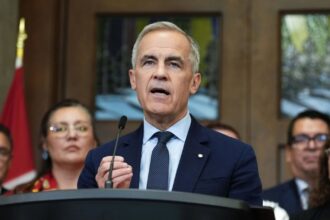The fight over transgender youth rights in Alberta intensified yesterday as the Canadian Medical Association (CMA) filed a landmark legal challenge against the province’s controversial Bill 7, marking an unprecedented step by the national medical body into provincial legislative matters.
“This legislation represents a dangerous intrusion into the doctor-patient relationship and contradicts established medical evidence,” said Dr. Kathleen Ross, president of the CMA, speaking outside the Alberta Court of King’s Bench in Edmonton. “We cannot stand by while political decisions override clinical judgment and potentially harm vulnerable young Albertans.”
The contested legislation, officially titled the “Gender Affirmation Medical Services for Minors Protection Act,” was passed in April despite vociferous opposition from medical professionals, human rights advocates, and LGBTQ+ organizations. The bill prohibits hormone therapy, puberty blockers, and gender-affirming surgeries for Albertans under 16, while imposing strict parental consent requirements for those aged 16-17.
Premier Danielle Smith has repeatedly defended the measure as “protecting children from irreversible medical decisions,” positioning it as part of her government’s broader parental rights agenda. However, the CMA’s 78-page legal filing argues the bill violates the Canadian Charter of Rights and Freedoms and unlawfully interferes with federally regulated healthcare standards.
Dr. Alika Lafontaine, past president of the CMA and an Alberta physician, told CO24 News that the organization’s decision to pursue legal action wasn’t taken lightly. “We exhausted every avenue of dialogue with the provincial government before proceeding with this challenge. When politics endangers patient care, physicians have a professional and ethical obligation to respond.”
The legal challenge has garnered support from the Alberta Medical Association, the Canadian Pediatric Society, and over 40 other medical organizations across the country. Their collective position reflects overwhelming scientific consensus that gender-affirming care significantly reduces depression, anxiety, and suicidal ideation among transgender youth.
Protesters gathered outside the courthouse, including 17-year-old Alex Thornton, who has been receiving hormone therapy for two years. “This bill would have prevented me from accessing care that saved my life,” Thornton told CO24 Canada News. “Politicians shouldn’t be making medical decisions about my body.”
The province has 30 days to respond to the challenge, with Justice Minister Mickey Amery already signaling the government’s intention to “vigorously defend” the legislation. “We believe strongly that parents must be involved in life-altering decisions affecting their children,” Amery stated in a press release.
The CMA’s challenge points to potential nationwide implications, as similar legislation has been proposed in Saskatchewan and New Brunswick. Legal experts suggest the case could eventually reach the Supreme Court of Canada, potentially establishing precedent regarding the limits of provincial authority over healthcare decisions.
Dr. Samuel Veissière, medical anthropologist at McGill University, told CO24 Politics that the case highlights a troubling pattern. “We’re seeing the politicization of medical care in ways that should concern all Canadians. Evidence-based medicine must be protected from ideological interference, regardless of which side of the political spectrum that interference comes from.”
The court challenge raises a fundamental question that extends beyond transgender healthcare: in a democracy, where should we draw the line between parental authority, individual autonomy, and the state’s role in regulating medical decisions?
























